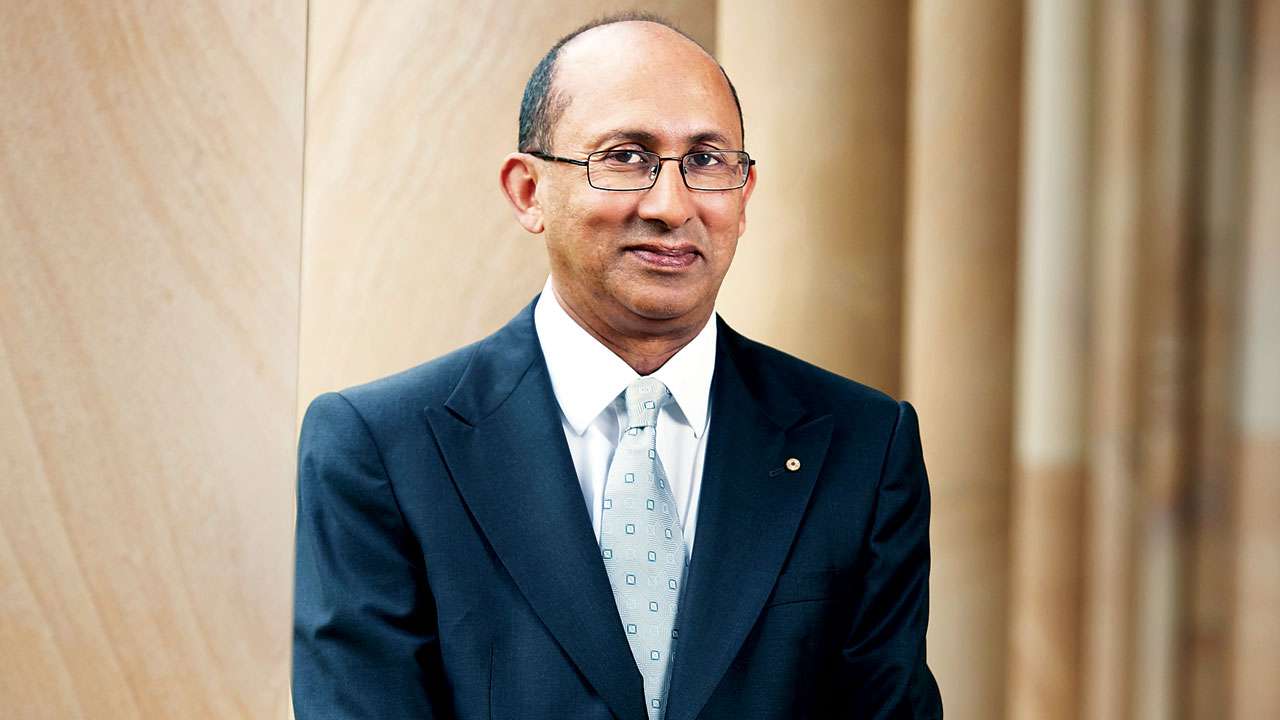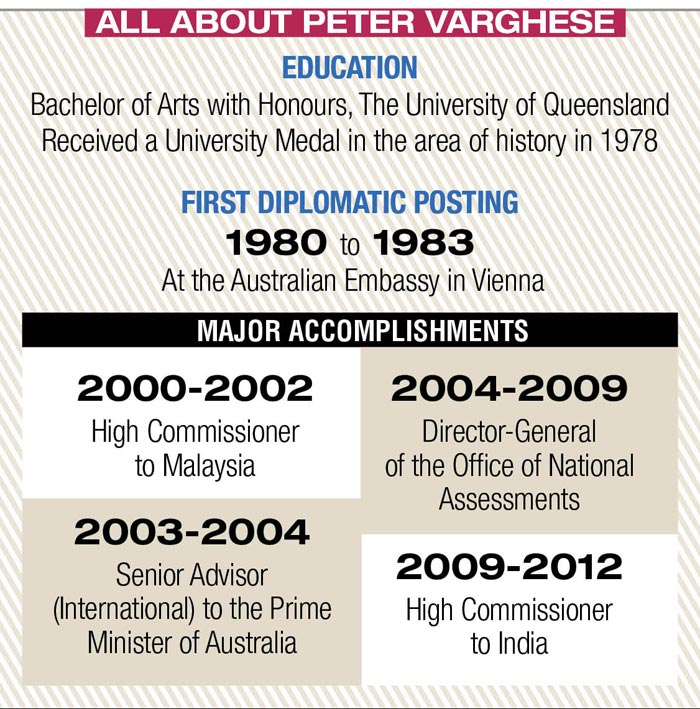
Peter Varghese, who retired as the Secretary in Australian Government's Department of Foreign Affairs and Trade in July 2016 and is currently Chancellor of the University of Queensland, was asked by the Australian government to prepare a report on Indo-Australian relationship. His 535-page report, released by the Australian government, talks about the strategic importance of the relationship between the two countries, and highlights various areas for cooperation. The former diplomat spoke to DNA about the road map for better ties between the two countries.
I think from Australian point of view, we seem to be entering an uncertain period internationally. The pillars of geo-strategic stability and economic prosperity seem to be under stress. We have the United States which is trying to reevaluate its global role. Australia has very pleasant ties with the United States. We live in a region where US strategic leadership led to stability. But it is a challenge when you have China which is obviously much more certain about itself and quite openly talking about its ambition to be dominant in Asia, and also Russia. And the challenge is not just from these countries, but also from emerging powers who don't want to be bound by the rules they were not involved in writing.
And then you have growing protectionism not just in the United States, but a number of other countries which have domestic pressures.
I don't think we know what will come next and we don't know how quickly some of this unraveling will happen. But what we know is that the global world order is at a tipping point. And we need to be thinking about how we manage the consequences. One of the political points I make in the report is the need for strategic relationships in the Indo-Pacific to balance China. That protects the interests of an open society and is really where Australia-India partnership becomes important.
When I talk about a growing congruence of strategic interests between Australia and India, I mean that with India having abandoned the non-alignment way, it is developing stronger strategic ties with countries like the United States and Japan, both of which are strategically close to Australia. Because of this, India inevitably lines up with Australia vis-a-vis China. If you consider all of these things, the need for Australia and India to have a stronger strategic partnership becomes clearer. This is not an alliance because India is not interested in an alliance with anyone. India wants to preserve its strategic flexibility and does not want its room for maneuver constrained by any alliance.
But there are many more things that you can constructively work together on, including deeper strategic dialogue as well as trilateral type of arrangements — between Australia, India and Japan.
The Quad, which is the US, Japan, Australia and India, will be quite a core element even though I don't expect the Quad to develop into a group very quickly. It will take careful steps. Then you have some countries in south-east Asia that are looking for a stable equilibrium in the region.
Well, Singapore. And Indonesia, which is by far the largest country in south-east Asia. Vietnam, while it is not a democracy in the way that Indonesia and India are, has a history of strategic caution when it comes to China. Although, there are limits to how far it can go. Then you have the open question about where South Korea will fit into this.
I don't talk in terms of an alliance because an alliance would be a very specific relationship. What is being talked about is much more organic. It is a process which will be driven by different motivations but often a similar conclusion, but as in any relationship, there would be three elements based on commerce, geopolitics and people. The strongest relationship will obviously bring all three components together in a significant way. That is why the future for Australia-India is quite bright because we have the potential to grow later on.
I actually don't think that the region has one leader, because ultimately the process is going to be much more organic in development. I think it will be more of a response than a shaping, and we have very strong economic links to China which will no doubt influence its position. The more active countries on the other side of the China balance will be the US, Japan, India and then a country like Australia, which has had both an alliance relationship with the US and a strong and important economic relationship with China.

I think Australia can play a role in seeking new ideas about how India is relying on a new strategic equilibrium in the region. But China is growing at a time of declining US predominance. The simultaneous rise in Asia of so many countries, including Japan, India and Indonesia, is very important. It is almost unparalleled in history to have all of them rising ta the same time.
Australia will want to protect relationships with a whole range of countries in the region. We will want to have a close relationship with China because of its economic importance to Australia, and obviously want to keep a close security relationship with the US, and now we are approaching much more comprehensive relationships with Japan and India as well as Indonesia. So I think Australia is still seeking to strengthen links within the Indo-Pacific region while also working to balance and engage China more often.
It makes sense to bring India directly into APEC. We are seeing the gravitational pull of East Asia on India's economic interest and an India that is much more connected to East Asia economically.
Up till now, there has not been a consensus to do that. Then you also have a bit of a waiting list of countries that are interested in APEC. The case for Indian membership of APEC is strong and it is getting stronger precisely because of the economic linkages that are deepening between India and APEC economy.
Yes, agriculture is among the top four sectors in my report. I think there are a number of different elements. Firstly, the traditional agricultural trade element and access to the Indian market, tariffs and border barriers, and how we need to make more progress on that. Secondly, there are opportunities for partnership between Australia and India in areas like water management and logistics and storage, all of which are important for Indian agriculture. We are willing to share knowledge and expertise in these areas. There are prospects of joint ventures that look at value addition, not just exporting.
If you know, a contentious issue between us at the moment is the imposition of tariffs on pulses which was done with very little warning to our exporters. If we work on weather forecasting, it can enable India get a better sense of what the crop and its quality is going to be like. I mean, that would be very helpful.
Well, so, the government has indicated that they are in the process of considering the recommendations and they will be consulting with stakeholders before finalising a view. I think they will be reasonably quick in their consideration, as I have included in my report 10 recommendations that I think can be implemented pretty quickly, and then I have another 10 which will take more time and a bit more resources.
So the government has been given a sense of what they might be able to do straight away, almost straight away, and what may take a bit longer to do. And all the indications that have come suggest that they will consider the recommendation.
The universities in Australia have reacted quite positively to the report. I don't think the government has yet taken a formal view on each of the education recommendations. I acknowledge that there is not a long history of cooperation among Australian varsities when it comes to marketing in India, and I don't expect that this will be an easy recommendation from their point of view. Each university has their own marketing strategy and I am not suggesting that they abandon that. I am not suggesting a single strategy for everyone. But I think we need to emphasise quality in our messaging more than we currently do. Secondly, there is room for us to collaborate more.